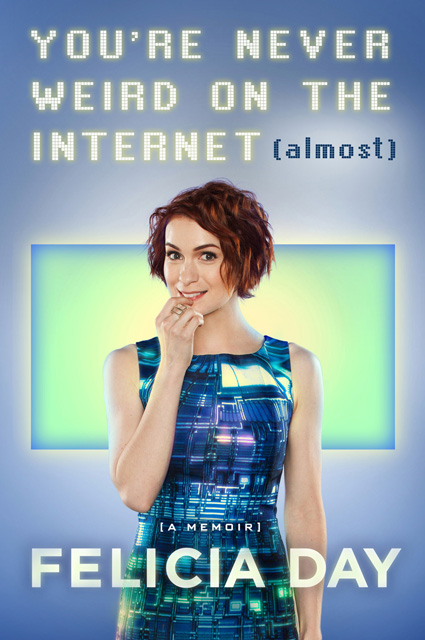We’re living in the era of the female celebrity memoir. Everyone from Amy Poehler to Lena Dunham to Amanda Palmer has written one, usually with a message about saying yes to opportunities. Now, it’s Felicia Day’s turn, with You’re Never Weird On The Internet (Almost) (Touchstone; $25.99).
Day, who appears at multiple book events in the Bay Area this month, is internet famous. While many might not know her work, she’s popular online for her roles in Joss Whedon projects like Dr. Horrible’s Sing-Along Blog and for creating the web series The Guild.
In her memoir, Day uses the same nervous, funny voice used in her online videos. One second she’s on the verge of a freakout, the next she’s doing cartwheels on the page with all-caps and exclamation points. The book is peppered with Photoshopped images and humorous insights into her childhood: “Growing up without being judged by other kids allowed me to be okay with liking things no one else liked,” she writes. “How else could a twelve-year-old girl be so well versed in dragon lore and film noir?”
But Day isn’t weird so much as interesting. A home-schooled Southerner who moved around a lot, she describes a laissez-faire childhood that included computer games, fantasy books, and visiting Civil War memorial sites. (“It’s super fun to roll down a grassy hill where thousands of Confederate bodies are buried,” she writes.) She’s also smart, almost preciously so; upon learning she had to pass her SATs to get into college, she completed 100 practice tests over five days and got an almost perfect score. She enrolled in college at age 16 with a double major in math and violin, and graduated as valedictorian.

Not that Day wants you to know these things. Her accomplishments are buried underneath self-deprecating humor that seems almost pathological. Here’s how she tells you about her musical skills: “Surprisingly, people didn’t invite the sixteen-year-old violin prodigy to keggers.” Hang on, she was a violin prodigy? Talk about burying the lede.


